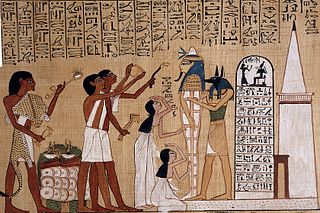
A funeral is a ceremony connected with the final disposition of a corpse, such as a burial or cremation, with the attendant observances. Funerary customs comprise the complex of beliefs and practices used by a culture to remember and respect the dead, from interment, to various monuments, prayers, and rituals undertaken in their honor. Customs vary between cultures and religious groups. Funerals have both normative and legal components. Common secular motivations for funerals include mourning the deceased, celebrating their life, and offering support and sympathy to the bereaved; additionally, funerals may have religious aspects that are intended to help the soul of the deceased reach the afterlife, resurrection or reincarnation.

A wedding is a ceremony where two people are united in marriage. Wedding traditions and customs vary greatly between cultures, ethnic groups, religions, countries, and social classes. Most wedding ceremonies involve an exchange of marriage vows by a couple, presentation of a gift, and a public proclamation of marriage by an authority figure or celebrant. Special wedding garments are often worn, and the ceremony is sometimes followed by a wedding reception. Music, poetry, prayers, or readings from religious texts or literature are also commonly incorporated into the ceremony, as well as superstitious customs. Many weddings are religious events. Therefore, the influence of religion is significant. The "white wedding" in Europe and the United States, which has become mainstream worldwide, is deeply related to Christianity values.

A ceremony is a unified ritualistic event with a purpose, usually consisting of a number of artistic components, performed on a special occasion.

Humanist Canada is a national not-for-profit charitable organization promoting the separation of religion from public policy and fostering the development of reason, compassion and critical thinking for all Canadians through secular education and community support. Humanist Canada was founded in 1968 and has grown over the past five decades to become Canada’s national voice of Humanism. Humanist Canada is an associate member organization of Humanists International. The official symbol of the organization is a modified Happy Human in a red and blue maple leaf.

An officiant is someone who officiates at a service or ceremony, such as marriage, burial, or namegiving/baptism.

The Icelandic Ethical Humanist Association is a humanist lifestance organization in Iceland, that promotes secularism, offers celebrancy services and contributes to the spreading of humanism in Iceland and abroad. It is a member of the European Humanist Federation and Humanists International.

The following outline is provided as an overview of and topical guide to humanism:

In Australia, celebrants are people who conduct formal ceremonies in the community, particularly weddings, which are the main ceremony of legal import conducted by celebrants. They may also conduct extra-legal ceremonies such as naming of babies, renewal of wedding vows, funerals, memorial services, Divorce, Becoming a teenager, support in adolescence, changing name, significant birthday, retirement, adopting a child, on taking over a house, on leaving a house, or dedicating a house - in short for all of life milestones. Officiating at a marriage, the flagship ceremony of every culture, requires that the celebrant be an authorised marriage celebrant under Australian law, or the law where the marriage takes place, but officiating at non legal ceremonies does not.
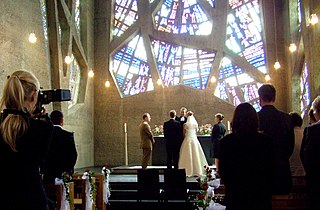
A marriage officiant is a person who officiates at a wedding ceremony.

A humanist celebrant or humanist officiant is a person who performs humanist celebrancy services, such as non-religious weddings, funerals, child namings, coming of age ceremonies and other rituals. Some humanist celebrants are accredited by humanist organisations, such as Humanists UK, Humanist Society Scotland (HSS), The Humanist Society (US), and the Humanist Association of Canada (HAC).
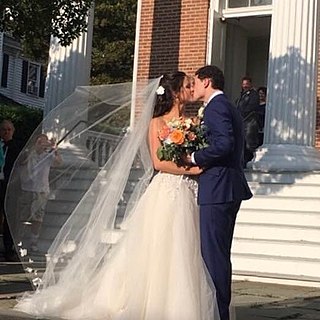
Celebrancy is a cultural profession founded in Australia on the 16th July 1973 by the Australian statesman and then commonwealth Attorney-General Lionel Murphy. The aim of the celebrancy program was to authorise persons to officiate at secular ceremonies of substance, meaning and dignity mainly for non-church people. Up until this point legal marriages were reserved only to clergy or officers of the Births, Deaths & Marriages registry office. These appointed persons, referred to in the Marriage Act of Australia as "authorised celebrants", create & conduct weddings, funerals, namings, house dedications, coming of age and other life ceremonies for those who do not wish to be married or have other ceremonies in a church or registry office.
Interfaith Officiants perform private weddings, commitment ceremonies, funerals, baby namings/welcomings, memorial services, vow renewals, handfastings, adoption ceremonies, family unions, ship christenings, home blessings, and other life-cycle events. They may also perform nontraditional religious or Humanist ceremonies in a variety of settings including on a beach, in a park, by the ocean, in the mountains, on a ski slope, at a banquet hall or at an event center. Interfaith Officiants are trained in world religions and inter-spirituality, and can assist people in identifying their own spiritual beliefs through a process of spiritual self-discovery.
The Institute of Civil Funerals (IoCF) is a not-for-profit, professional member organization that sets, regulates and maintains the national standard and quality of Civil Funerals in the UK and provides ongoing professional support and development for its members.

In Belgium, organized secularism is the local associations and organizations which provide moral support for naturalist, atheist, agnostic, secular humanist, freethinking, Bright, or irreligious and non-confessional citizens. A person who subscribes to such entities or ideologies, or at least espouses an interest in "free inquiry" apart from religious traditions is described as a "secular" or "free-thinker".

Natasha Johns-Messenger is an Australian conceptual artist and filmmaker, who has lived and worked in New York since winning the Green Card lottery in 2005. Johns-Messenger is best known for her large-scale site-determined installations that examine spatial perception and light. Her work is a complex process of imitation, illusion and trickery, often activated by architectural interventions and optical physics.
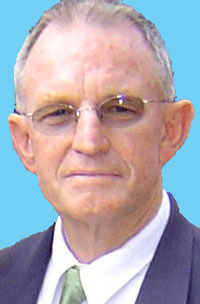
Dally Messenger III is a civil celebrant, author, publisher, commentator, and a founder and chronicler of the civil celebrant movement which originated in Australia. He is the grandson of the rugby union and rugby league footballer Dally Messenger, aka Herbert Henry "Dally" Messenger, whose nickname "Dally" has become his grandson's given name.

Funeral celebrant is a formal term denoting members of a group of non-clergy professionals who organise funeral ceremonies, which are not closely linked to any religion or to belief in an after-life. The concept of funeral celebrants is analogous in Western countries to that of civil celebrants. Civil celebrant funerals began in Australia in 1975. On 19 July 1973 the Australian Attorney-General Lionel Murphy had appointed civil marriage celebrants with the aim of creating ceremonies of substance and meaning for non-church people. As secular (civil) marriage ceremonies became accepted, first in Australia and then in other Western countries such as New Zealand, and much later in the United States of America it was inevitable that a similar philosophical paradigm would be applied to secular funerals.
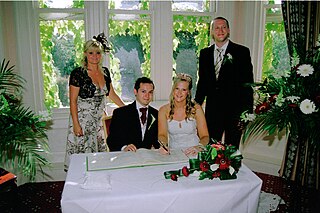
A civil, or registrar, ceremony is a non-religious legal marriage ceremony performed by a government official or functionary. In the United Kingdom, this person is typically called a registrar. In the United States, civil ceremonies may be performed by town, city, or county clerks, judges or justices of the peace, or others possessing the legal authority to support the marriage as the wedding officiant.
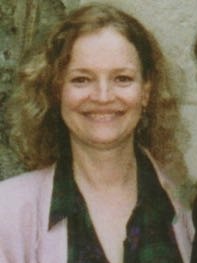
Remi Barclay Messenger, aka Remi Barclay & Remi Barclay Bosseau (b.1946) was a founding member of three prominent professional theatre companies in the New York City area – The Performance Group (l967–70), with Richard Schechner, Whole Theatre (1971–1990) and Voices of Earth (1988–2000), the latter two with Olympia Dukakis as a co-director. Her theatre work included years of acting, directing and teaching as well as creating workshops for a wide spectrum of institutions, schools and universities.















